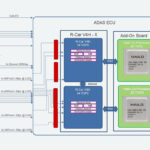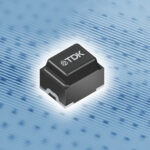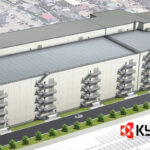ASIA ELECTRONICS INDUSTRYYOUR WINDOW TO SMART MANUFACTURING
Samsung Electro-Mechanics Pitches New Chip Substrate for ADAS
Samsung Electro-Mechanics announced the development of an automotive semiconductor substrate (FC-BGA) for advanced driver-assistance systems (ADAS). This development expands the company’s lineup of high-end automotive semiconductor substrates.
The newly developed FC-BGA is a substrate for high-performance autonomous driving (ADAS) systems. It is one of the most technically challenging products among automotive products.
Samsung Electro-Mechanics plans to supply this product to global customers. Particularly, it targets the electric vehicle market with the aim to become No. 1 in high-end automotive semiconductor substrates.

Substrate Requirement of Advanced Automotives
Today’s autonomous vehicles require a system on chip equipped with high-performance semiconductors for advanced technology.
Therefore, an autonomous driving system requires a high-performance and high-reliability semiconductor substrate that can optimize the performance of the semiconductor. This way, it can process large amounts of data at high speed without latency. Also, it can operate reliably without problems even in extreme driving conditions.
In addition, semiconductor functions for high-performance autonomous driving get more advanced. Thus, the number of packaged semiconductor chips and CPU cores per chip gets higher. This way, the semiconductor substrate becomes large and multi-layered. Moreover, the number of bumps also increases.
Integrated Improvements
In this new development, Samsung Electro-Mechanics applied its microcircuit technology acquired in high-end IT products, such as servers, to automotive products. As a result, it reduced the circuit width and spacing by 20 percent compared to the existing substrate (for partial autonomous driving). Also, it implemented more than 10,000 bumps in a limited space – the size of a passport photo.
The company also secured product reliability by increasing the substrate size to respond to multi-chip packages. Moreover, it improved the bending strength according to the increase in the number of layers.
Automotive semiconductors used in automobiles are directly related to safety. Thus, high level of reliability is required to ensure safe operation in harsher environments (high temperature, high humidity, impact) than IT products. In addition, as the level of autonomous driving increases, the performance and reliability of semiconductors used in vehicles become crucial. This further underscores the importance of semiconductor substrates.
The new product obtained AEC-Q100 certification, which is a reliability test standard for automotive electronic parts. It applies to all fields from the vehicle body and chassis to infotainment and autonomous driving.
Kim Eungsoo, Executive Vice President of the Package Solution Unit at Samsung Electro-Mechanics, said, “As the demand for high-end, high-performance semiconductors continues, FC-BGA is becoming the key to differentiating semiconductor performance. Samsung Electro-Mechanics will continue to discover core manufacturing technologies based on our FC-BGA technology leading the global market to increase quality competitiveness and expand our automotive FC-BGA market share by expanding production capacity.”
Since starting the package substrate business in 1991, Samsung Electro-Mechanics has been supplying products to major companies around the world as a leader in the substrate industry. Among them, the company has the largest market share in its flagship semiconductor package substrates for mobile apps. It also owns the most advanced substrate technologies, such as becoming the first in Korea to develop FC-BGA for servers, which is the most technologically challenging semiconductor substrate.
Samsung Electro-Mechanics is strengthening its lineup of automotive products based on technological prowess in implementing multi-layer, large-size, and microcircuit products. It newly established an organization dedicated to electric vehicles in major business units to expand the share of automotive products in its core businesses such as semiconductor substrates, camera modules, and multilayer ceramic capacitors.




